Share
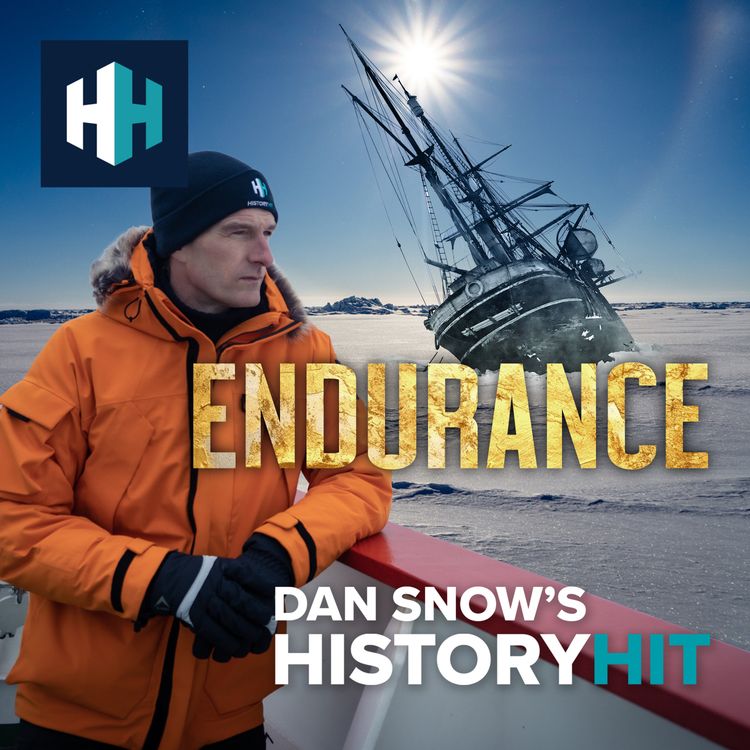
Dan Snow's History Hit
Tom Crean: The Unsung Irish Hero of the Antarctic
He was one of the last men to see Antarctic Explorer Robert Scott alive and was Shackleton's right-hand man on the Endurance expedition. So why don't more people know the name Tom Crean? He was a steadfast and courageous Irishman whose legendary feats in Antarctica shaped the course of exploration history. Born in 1877, Crean joined the Royal Navy at 16 and his adventures took him to the perilous glaciers of the South Pole as he became an integral member of both Scott’s and Shackleton’s iconic Antarctic expeditions. Crean’s resilience shone in moments of crisis, from daring solo rescues in lethal blizzards to enduring sledge journeys that tested the limits of human endurance. Yet, despite his astonishing achievements, Crean remained grounded, returning to a quiet life in Ireland. Join Dan as he uncovers the incredible story of this unsung hero.
Written by Dan Snow, produced by Mariana Des Forges and edited by Dougal Patmore.
You can discover more about the life and accomplishments of Tom Crean in Tim Foley's book 'Crean: The Extraordinary Life of an Irish Hero'.
This is the second episode in our Endurance season running through October & November to celebrate the release of the Endurance feature documentary on Disney+, Hulu and Nat Geo.
Other episodes mentioned in this show:
Was Scott's Antarctic Expedition Sabotaged?
For more Shackleton and Endurance content from History Hit, as well as AD-FREE content, sign up HERE for 50% off for 3 months using code ‘DANSNOW’.
We'd love to hear from you - what do you want to hear an episode on? You can email the podcast at ds.hh@historyhit.com.
You can take part in our listener survey here.
More episodes
View all episodes
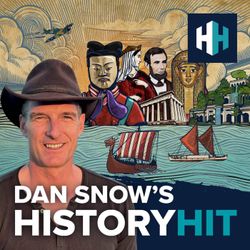
1754. How Did Three Samurai Warlords Unite Japan?
54:05||Ep. 1754Today, we dive into the chaotic final act of Japan’s Warring States period, and hear about the three warlords who brought it to an end. Oda Nobunaga, the ruthless innovator who shattered the status quo on the battlefield. Toyotomi Hideyoshi, the peasant-born schemer who climbed from the lowest social ranks to the very top of Japan's hierarchy. And Tokugawa Ieyasu, the patient survivor who outlasted them all and built a shogunate that would rule Japan for over 250 years.Joining us for this is Chris Harding, a cultural historian of Japan, India and East-West connections, based at the University of Edinburgh.Produced by James Hickmann and edited by Dougal Patmore.Dan Snow's History Hit is now available on YouTube! Check it out at: https://www.youtube.com/@DSHHPodcastSign up to History Hit for hundreds of hours of original documentaries, with a new release every week and ad-free podcasts. Sign up at https://www.historyhit.com/subscribe.We'd love to hear your feedback - you can take part in our podcast survey here: https://insights.historyhit.com/history-hit-podcast-always-on.You can also email the podcast directly at ds.hh@historyhit.com.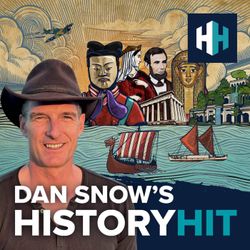
1753. Whaling
52:52||Ep. 1753The history of whaling is complicated. At its height in the 18th and 19th centuries, whaling was a global enterprise built on perilous voyages, long seasons at sea, and a fierce chase for oil and baleen that illuminated streets and homes and lubricated the industrial revolution. In doing so, obsessed nations like Britain, Norway and America hounded whale populations to the brink, decimating populations and altering marine ecosystems forever. But it's important to remember that this industry also has a rich social history. Whaling sustained communities across the globe, providing work, culture and a crucial way of life for working people in coastal regions and on remote islands like Shetland off the coast of Scotland. In this episode, Dan heads to Dundee, once a hub of the whaling industry, to explore both the devastating ecological impact and the rich human story to give us a fuller understanding of the history of whaling. He speaks to the curators at the South Georgia Museum, Jayne Pierce and Helen Balfour, as well as Richard Sabin from the Natural History Museum and also one of Shetland's last remaining whalers, Gibby Fraser. You can explore more at https://whalersmemorybank.sgmuseum.gs/ to read through testimonies from other whalers, see incredible archive images and learn more about whales in the Arctic and Antarctic. Produced by Mariana Des Forges and edited by Dougal PatmoreDan Snow's History Hit is now available on YouTube! Check it out at: https://www.youtube.com/@DSHHPodcastSign up to History Hit for hundreds of hours of original documentaries, with a new release every week and ad-free podcasts. Sign up at https://www.historyhit.com/subscribe.You can also email the podcast directly at ds.hh@historyhit.com.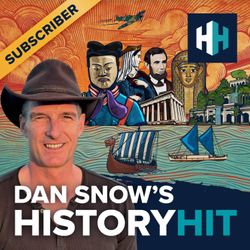
1752. The San José: The World's Most Valuable Shipwreck
31:42||Ep. 1752In 1708, a gigantic Spanish galleon laden with gold, silver and emeralds was blown apart by British cannon fire off the coast of Cartagena. More than 300 sailors went down with it. Three centuries later, the wreck of the San José has resurfaced at the centre of a global legal storm, as nations, corporations and communities clash over who truly owns one of the world's most valuable shipwrecks.To hear all about this, we're joined by Julian Sancton, author of 'Neptune's Fortune: The Billion-Dollar Shipwreck and the Ghosts of the Spanish Empire'.Produced by James Hickmann and edited by Dougal Patmore.We'd love to hear your feedback - you can take part in our podcast survey here: https://insights.historyhit.com/history-hit-podcast-always-on.You can also email the podcast directly at ds.hh@historyhit.com.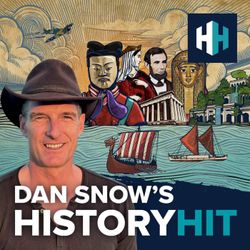
1751. Joan of Arc
01:01:28||Ep. 1751Teenage peasant, visionary commander, convicted heretic, national saint - Joan of Arc's life reads like a legend. Today, Dan digs past that legend to understand who Joan really was, and why her story still provokes devotion, debate and reinvention 6 centuries later.Produced by Mariana Des Forges and edited by Dougal Patmore.Dan Snow's History Hit is now available on YouTube! Check it out at: https://www.youtube.com/@DSHHPodcastSign up to History Hit for hundreds of hours of original documentaries, with a new release every week and ad-free podcasts. Sign up at https://www.historyhit.com/subscribe.We'd love to hear your feedback - you can take part in our podcast survey here: https://insights.historyhit.com/history-hit-podcast-always-on.You can also email the podcast directly at ds.hh@historyhit.com.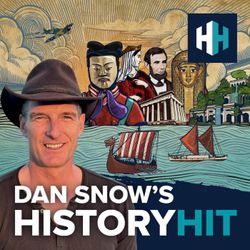
1750. The Dambusters Raid Explained
44:43||Ep. 1750In May 1943, the RAF launched one of the Second World War’s most audacious missions: the Dambusters Raid. Today, we follow the raid as it unfolded, hearing about the remarkable people involved and examining its lasting impact.Produced by Mariana Des Forges and edited by Dougal Patmore.Dan Snow's History Hit is now available on YouTube! Check it out at: https://www.youtube.com/@DSHHPodcastSign up to History Hit for hundreds of hours of original documentaries, with a new release every week and ad-free podcasts. Sign up at https://www.historyhit.com/subscribe.We'd love to hear your feedback - you can take part in our podcast survey here: https://insights.historyhit.com/history-hit-podcast-always-on.You can also email the podcast directly at ds.hh@historyhit.com.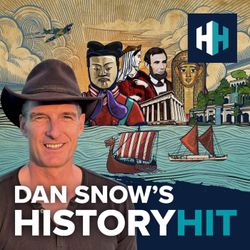
1749. The Battle of Bosworth
44:28||Ep. 1749In August 1485, the would-be king Henry Tudor went head-to-head with King Richard III - the final, decisive battle of the Wars of the Roses. Only one of these men would leave the battlefield alive, and this bloody clash between Houses York and Tudor would decide the future of Britain.Joining us is Matt Lewis, host of the Gone Medieval podcast, to take us through this climactic moment in British history.Produced by Mariana Des Forges and edited by Dougal Patmore.Dan Snow's History Hit is now available on YouTube! Check it out at: https://www.youtube.com/@DSHHPodcastSign up to History Hit for hundreds of hours of original documentaries, with a new release every week and ad-free podcasts. Sign up at https://www.historyhit.com/subscribe.We'd love to hear your feedback - you can take part in our podcast survey here: https://insights.historyhit.com/history-hit-podcast-always-on.You can also email the podcast directly at ds.hh@historyhit.com.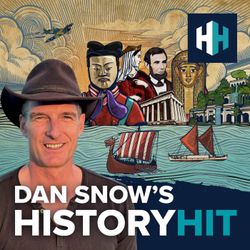
1748. The Top Assassination Attempts on Hitler
41:20||Ep. 1748What does it take to kill a dictator? In this episode, we explore the most dramatic assassination attempts on Adolf Hitler. From Georg Elser, the lone-wolf carpenter who built a bomb by hand, to the Polish underground’s relentless plots under occupation, and finally Claus von Stauffenberg, the one-eyed officer whose briefcase bomb nearly took out the Führer.Joining us for this is Roger Moorhouse, author of 'Killing Hitler'.Produced by James Hickmann and edited by Dougal Patmore.Dan Snow's History Hit is now available on YouTube! Check it out at: https://www.youtube.com/@DSHHPodcastSign up to History Hit for hundreds of hours of original documentaries, with a new release every week and ad-free podcasts. Sign up at https://www.historyhit.com/subscribe.We'd love to hear your feedback - you can take part in our podcast survey here: https://insights.historyhit.com/history-hit-podcast-always-on.You can also email the podcast directly at ds.hh@historyhit.com.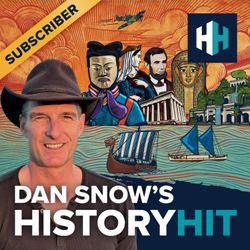
1747. The German Peasants' War
43:20||Ep. 1747In the early 16th century, tens of thousands of peasants across the German-speaking lands rose up against their lords. Fuelled by economic hardship, religious upheaval and radical new ideas about justice and freedom, the German Peasants’ War became the largest popular revolt in European history before the French Revolution.In this episode, we're joined by Professor Lyndal Roper to explore why the rebellion erupted, how it spiralled into brutal violence and how its failure reshaped Europe for centuries to come.Professor Roper's book is called 'Summer of Fire and Blood: The German Peasants' War'.Produced by James Hickmann and edited by Dougal Patmore.We'd love to hear your feedback - you can take part in our podcast survey here: https://insights.historyhit.com/history-hit-podcast-always-on.You can also email the podcast directly at ds.hh@historyhit.com.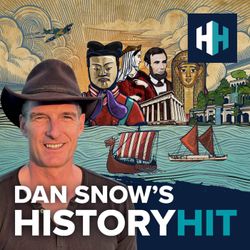
1746. A History of Iran
01:10:10||Ep. 1746How does Iran's history underpin today's unrest? Dan traces more than 2,500 years of Iran's story — from the first Persian empires through conquest, dynasties, and revolution — to understand how power, identity, and sovereignty have shaped the country. He's joined by Ali Ansari, Professor of Iranian History at the University of St Andrews, to explore key turning points over the centuries from the Arab conquest to the 1953 overthrow of Prime Minister Mohammad Mosaddegh and the 1979 Revolution.A version of this podcast was first released back in 2019. Produced by Mariana Des Forges and edited by Dougal Patmore Dan Snow's History Hit is now available on YouTube! Check it out at: https://www.youtube.com/@DSHHPodcastSign up to History Hit for hundreds of hours of original documentaries, with a new release every week and ad-free podcasts. Sign up at https://www.historyhit.com/subscribe.We'd love to hear your feedback - you can take part in our podcast survey here: https://insights.historyhit.com/history-hit-podcast-always-on.You can also email the podcast directly at ds.hh@historyhit.com.